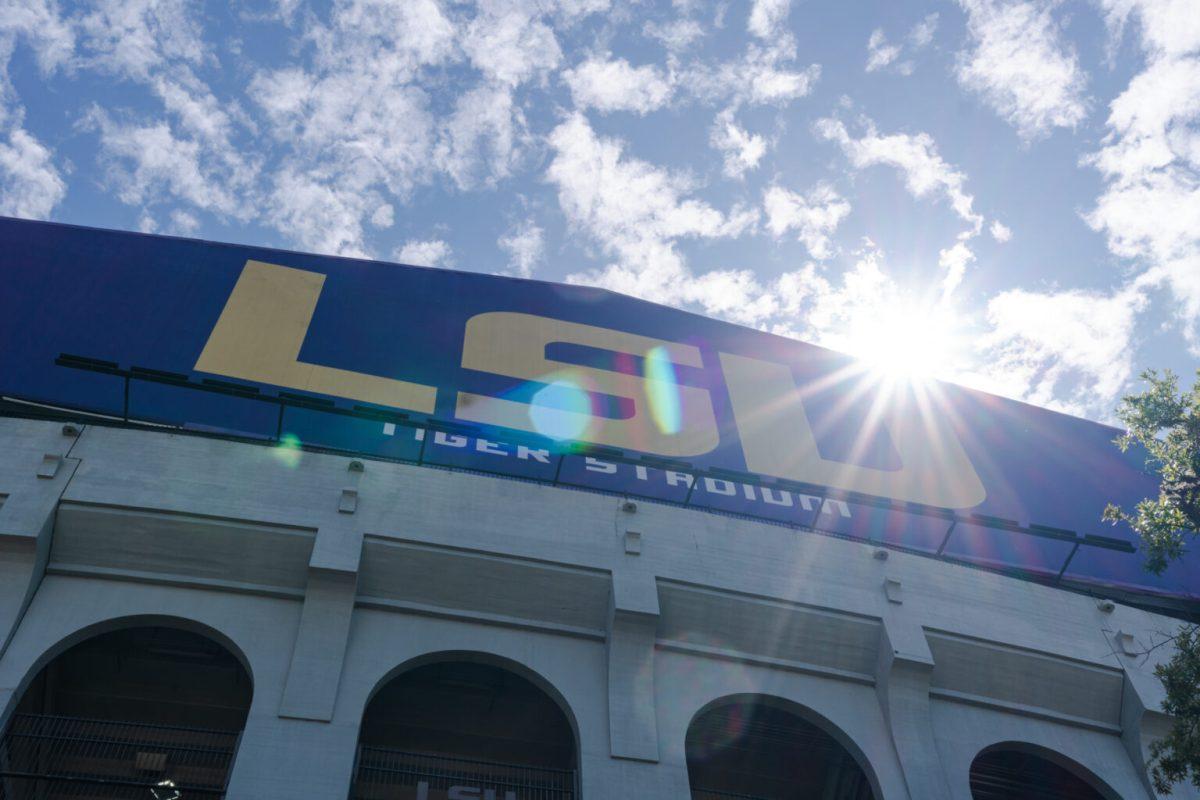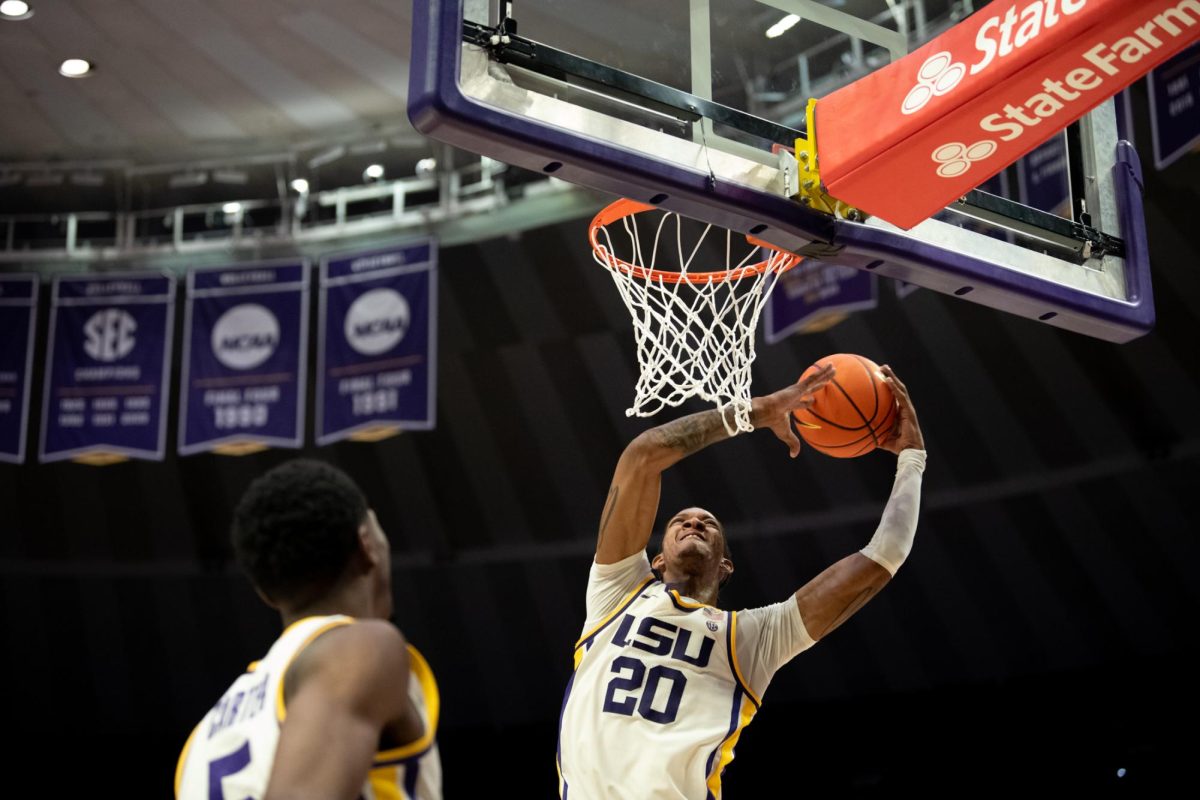Football was the only sport left.
Major League Baseball allows high school students to be drafted and then climb up the minor league ladder to the highest level.
The National Basketball Association has made drafting 18- and 19-year-old kids a regularity and its largest draw, rookie LeBron James of the Cleveland Cavaliers, had just attended his senior prom a few months prior to becoming the first overall pick in the NBA draft.
And the National Hockey League also drafts high school students and throws them directly into the fire.
But the National Football League had in its bylaws that a football player had to be three years out of high school to enter its draft.
On Feb. 5, 2004, that all changed because of one player, and the rulings backlash, if any at all, is still yet to be seen.
Maurice Clarett, a troubled but talented running back who played one year at Ohio State University, wanted to play football for money. And he did not want to wait another year to do so.
After leading the Buckeyes to the national football championship in 2002, Clarett got into some legal troubles and was forced to sit out a year from college football. But he could not enter the NFL draft because of its bylaws.
Clarett decided to challenge the NFL rule in federal court, arguing that the rule was preventing him from making a living at his profession. He cited the Sherman Act and antitrust laws, saying the NFL was a distinct market for professional football in the United States for which there were no reasonable substitutes.
U.S. District Judge Shira Scheindlin, who presided over the case, said the legal issues were so in favor of Clarett a trial was not even necessary.
The NFL appealed the decision and it was overturned Monday by the 2nd U.S. Circuit Court of Appeals according to ESPN.com wire services. With the decision, Clarett and USC wide receiver Mike Williams, who also entered the draft early, will not be allowed to remain in the draft. The decision could still be overturned according to the report.
If the ruling is overturned again, many football analysts and coaches believe it will turn the NFL into a daycare, with teenagers ruling the ranks much like the NBA. But many of their colleagues believe the college and professional game will not be affected much at all because kids will realize they are not ready for the pro game.
The Ruling’s Effect
LSU football coach Nick Saban, who was an assistant in the NFL before becoming a very successful college coach, said he knew the day would come when “the rule,” which the NFL bylaw prohibiting high school students and first- and second-year college students from entering the draft was commonly called, would be challenged.
“It didn’t really surprise me that someone would eventually challenge the three-year rule because in most of the other sports in college, players can come out at any time because of their right to work,” Saban said.
Saban said he was in favor of the rule because it protected young men from making bad decisions, especially with people not looking out for their best interests weighing in on it.
“I do expect it to have some impact on the future,” Saban said. “I think it’s going to have a negative impact on a lot of young men who are going to go out for the draft early and be very disappointed.”
Saban said juniors and seniors in college have a hard time getting drafted, much less freshmen, sophomores and high school seniors. He said in the 2003 NFL draft, 99 juniors left school early to enter the draft, and only 35 were selected.
Carroll Delahoussaye, the football coach at St. Martinville High School in St. Martinville, La., thinks along the same lines as Saban.
Delahoussaye, who has coached for 31 years, actually had a player in 2003 that could have considered entering the draft after the ruling. Wide receiver Early Doucet, an LSU signee, was widely regarded as the top wide receiver prospect in the country by many recruiting publications.
“Physically, there are some guys that might be able to do it one day,” Delahoussaye said on jumping directly from high school to the NFL. “But a 17- or 18-year-old kid is so immature. There is no possible way in my mind that a high school senior could possibly handle that.”
But Delahoussaye said unfortunately he expects some kids to think they can make the jump.
“The first thing that came to my mind when I heard the ruling was I prayed to God they overrule it or change it back to the old rule,” Delahoussaye said. “I think it will ruin some kids. It’s going to water down the talent level in college. The kids staying for three years are going to be gone. I just can’t see it working.”
Delahoussaye said even his star, Doucet, is not near ready for the rigors of the NFL.
“He is not close,” Delahoussaye said of Doucet. “With all the natural ability he has, he’s not close. You gain a certain maturity level when you go from high school to college, and I don’t see how anyone could bypass any of that.”
The NCAA, an obvious stakeholder in the decision, is very concerned by the ruling.
Football is the cash cow for the organization and its driving force. Any change in the college game could gravely affect the NCAA and its operations.
NCAA President Myles Brand said he is more concerned with the educational repercussions of the ruling.
“From an educational perspective, I am very concerned about this decision,” Brand said. “Those who stand the most to lose educationally if the decision is upheld are the football student athletes who leave without their degrees. This is a setback from that perspective.”
Saban agreed with Brand and said because of the average life expectancy of a professional football player, which is three-and-a-half years, most athletes need something to fall back on.
“There is two careers that you need to worry about developing and one takes an education,” Saban said. “A college education is still a tremendous asset to have in your portfolio and being a pro football player is a great desire for anyone to have. So how we manage and balance this in the future I think is very important.”
The Other Side
Mike Scarborough has been following high school athletes for years.
Scarborough runs Tigerbait.com, an LSU football recruiting Web site, and is in touch with star high school athletes every day of his life.
And although Scarborough thinks high school athletes and first- and second-year college football players should stay in school because of the social experience, he said he does not think the Clarett ruling will have a grave effect on college and professional football.
“When this case happened, a lot of people said, ‘well here goes college football,'” Scarborough said. “People were saying how this was going to be the death of college football. But I don’t think that’s going to be the case at all. I think it was an isolated incident and I don’t believe it’s going to have any affect on college football at all.”
Scarborough said kids will realize that the NFL is a whole different monster from the NBA, where high school athletes often succeed early.
“I don’t see a rash of Early Doucets opting to jump to the NFL right out of high school,” Scarborough said. “I don’t think there is going to be a wholesale movement of guys going to the NFL. Football is just so different from college basketball.”
Courts ban early entry to NFL draft
April 19, 2004





